Unlocking the Health Secrets of Herbal Teas: A Comprehensive Guide
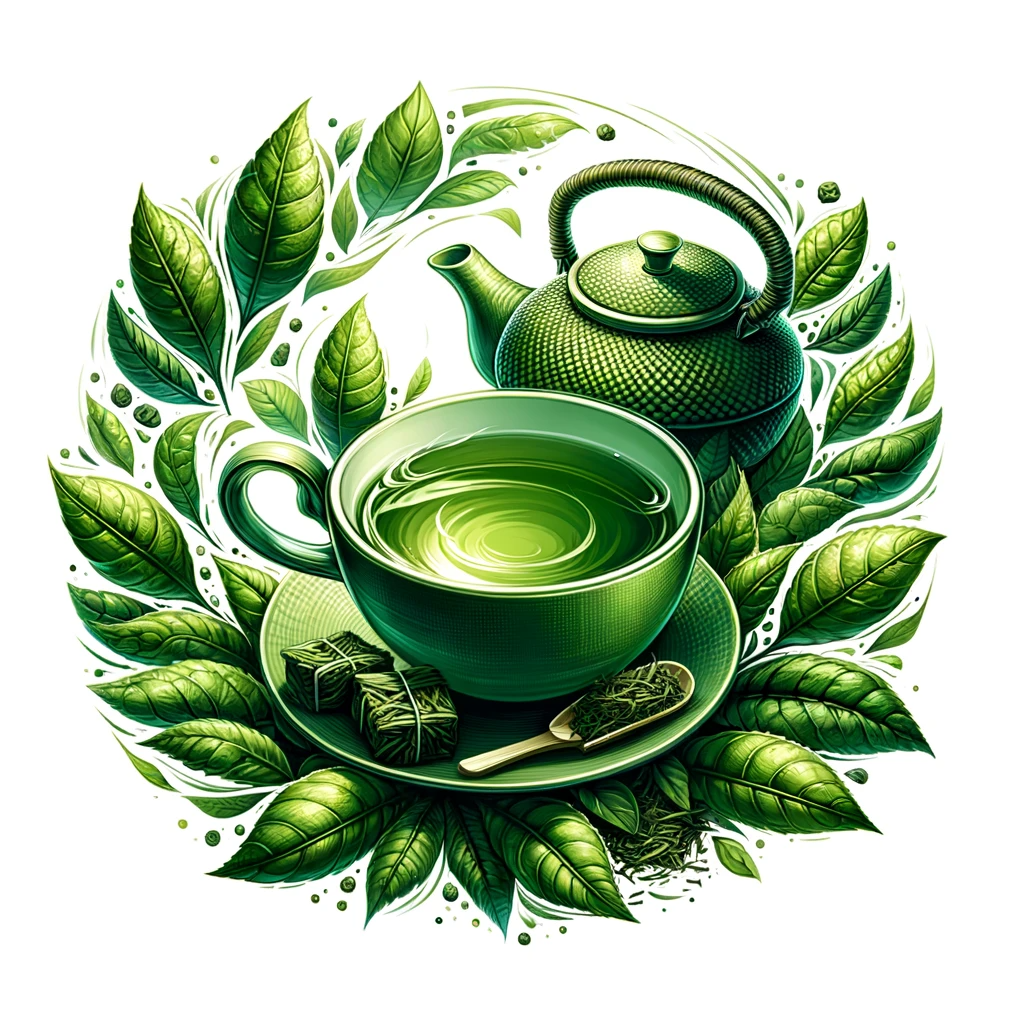
Key Takeaways Table
| Key Point | Details |
|---|---|
| Nutritional Value | Rich in vitamins, minerals, and antioxidants |
| Stress Reduction | Herbal teas can significantly reduce stress |
| Digestive Health | Aid in digestion and alleviate gastrointestinal issues |
| Immune System Boost | Contains compounds that strengthen immunity |
| Holistic Health Integration | Complements holistic health practices |
Herbal teas, steeped in tradition and flavored with nature’s bounty, offer a plethora of health benefits that are both healing and preventive. In this comprehensive guide, we’ll explore the various ways these herbal infusions contribute to overall well-being, delving deep into their nutritional makeup and therapeutic properties.
The Nutritional Powerhouse in a Cup
Herbal teas, ranging from chamomile to peppermint, are not just warm, comforting beverages. They are nutritional powerhouses, laden with vitamins, minerals, and antioxidants. Each herb brings its unique profile of nutrients, making these teas a valuable addition to your daily routine. These nutrients play a crucial role in maintaining various bodily functions, from boosting the immune system to enhancing skin health.
Soothing Stress and Anxiety
In today’s fast-paced world, stress and anxiety are common ailments. Herbal teas are known for their calming properties, providing a natural way to unwind. Herbs like lavender and chamomile are particularly effective in reducing stress and improving sleep quality. By incorporating these teas into your daily regimen, you can create a tranquil moment of peace in your busy day.
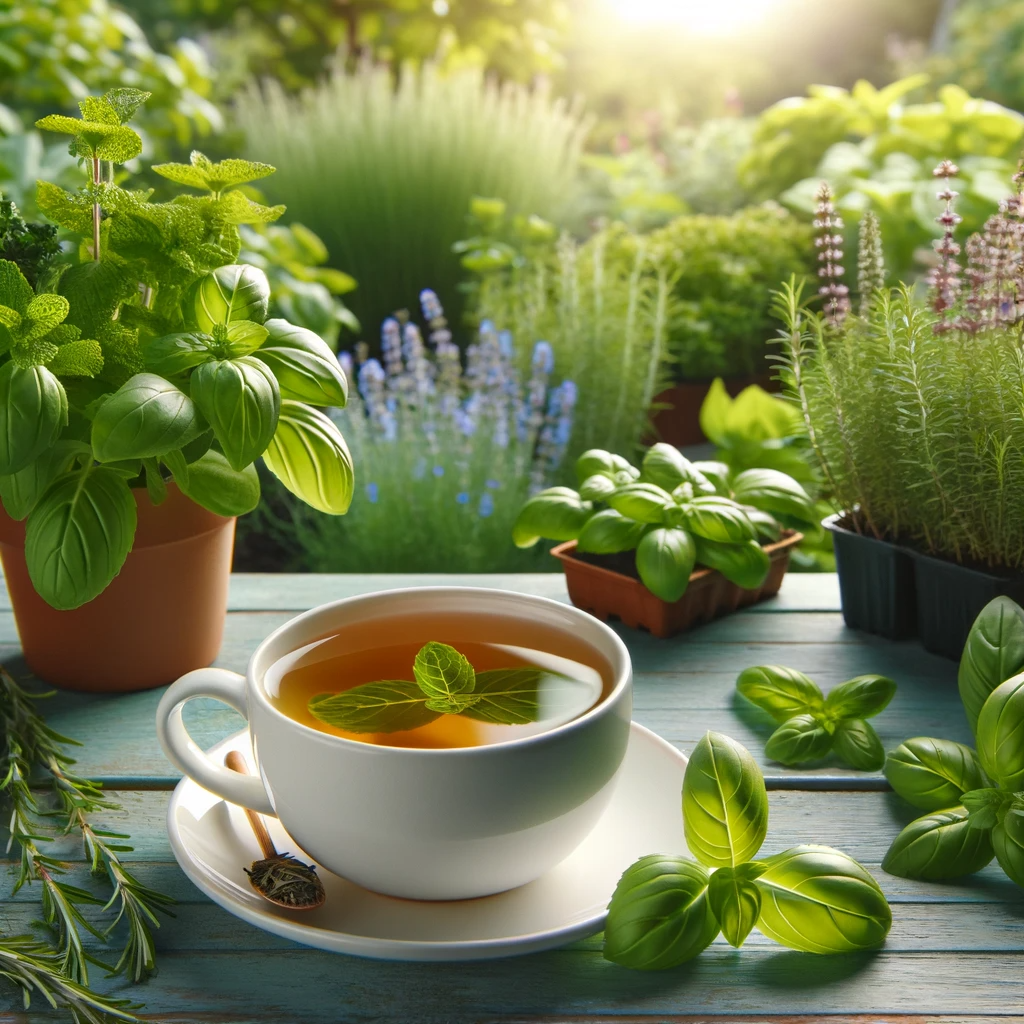
Aiding Digestion
Digestive health is pivotal for overall wellness. Herbal teas such as ginger and peppermint have been used for centuries to aid digestion and alleviate gastrointestinal issues. They can soothe an upset stomach, reduce bloating, and enhance absorption of nutrients.
Boosting Immune Health
The immune-boosting properties of herbal teas cannot be overstated. Ingredients like echinacea and elderberry are renowned for enhancing the body’s immune response. Regular consumption of these teas can fortify your body’s defenses against common colds, flu, and other infections.
Complementing Holistic Health Practices
Herbal teas align perfectly with holistic health approaches. They are a natural, gentle way to nurture the body and mind, complementing other holistic practices like meditation and yoga. For those interested in holistic nutrition and health, integrating herbal teas into your diet can be a simple yet effective step.
Integrating the wisdom of herbal teas into your daily routine can be both enjoyable and beneficial. For those new to the world of herbs, our guide on the best herbs for beginners offers a great starting point. To delve deeper into the holistic approach to wellness, explore our resources on holistic health, holistic nutrition and health, and holistic therapy and wellness. Additionally, our smudging kits comparison provides insights into another aspect of holistic practices.
Exploring Specific Herbal Teas and Their Benefits
Herbal teas encompass a wide range of flavors and health benefits. Let’s dive into some specific types and understand what they offer:
- Chamomile Tea: Known for its calming effects, chamomile tea is excellent for promoting sleep and reducing stress. It also possesses anti-inflammatory and antioxidant properties, making it beneficial for skin health.
- Peppermint Tea: A go-to remedy for digestive issues, peppermint tea can relieve symptoms of bloating, gas, and indigestion. It also has a refreshing taste and aroma, which can help boost mood and mental focus.
- Ginger Tea: With its potent anti-inflammatory and antioxidant effects, ginger tea is ideal for boosting immune health. It’s also widely used to alleviate nausea and improve digestion.
- Hibiscus Tea: This vibrantly colored tea is rich in Vitamin C and antioxidants. Hibiscus tea can help lower blood pressure and support cardiovascular health.
- Green Tea: While not a traditional herbal tea, green tea is renowned for its numerous health benefits, including weight loss support, improved brain function, and cancer prevention properties due to its high antioxidant content.
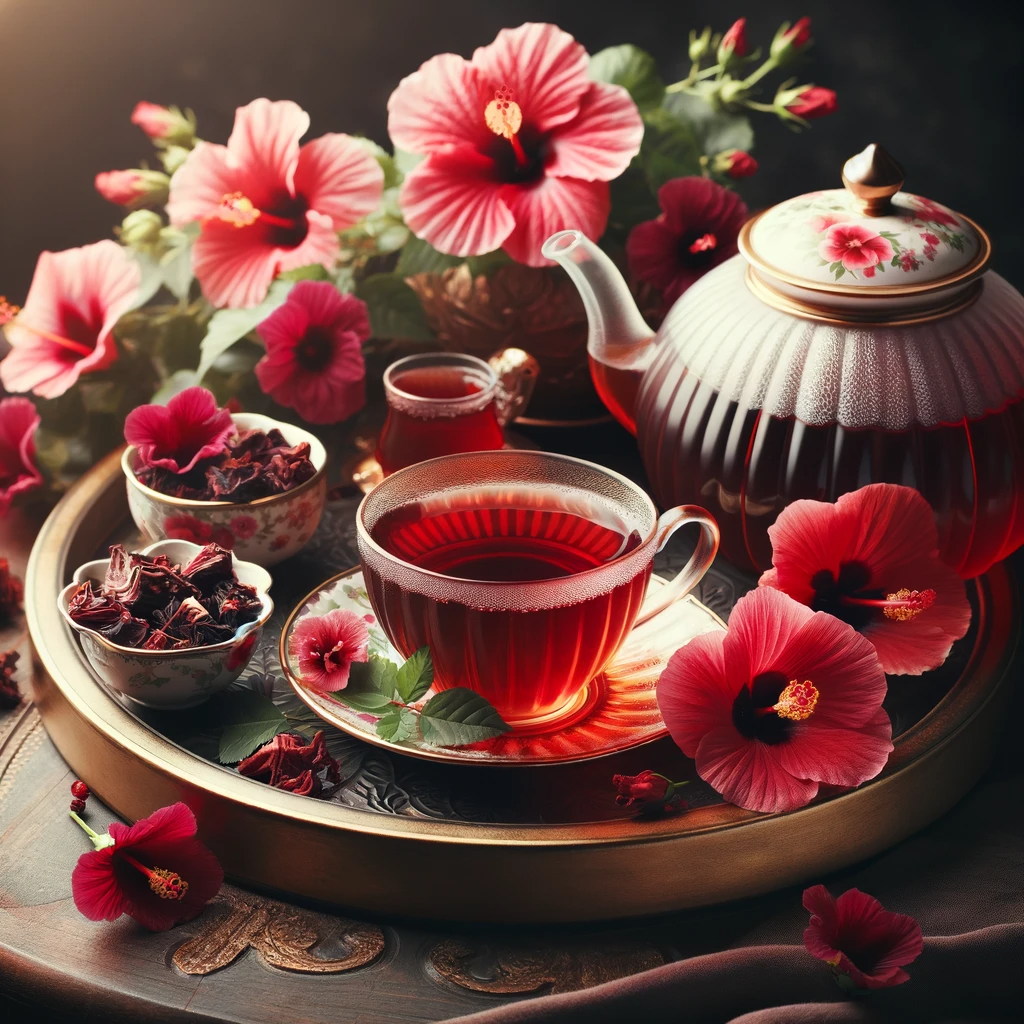
Incorporating Herbal Teas into Your Lifestyle
Integrating herbal teas into your daily routine can be a delightful and health-promoting practice. Here are some tips:
- Start Your Day Right: Begin your morning with a cup of herbal tea to kickstart your metabolism and hydrate your body.
- Mindful Breaks: Replace your afternoon coffee with a herbal tea for a caffeine-free energy boost.
- Evening Rituals: Enjoy a calming herbal tea in the evening to unwind and prepare for a restful sleep.
Scientific Backing of Herbal Teas
The health claims of herbal teas are backed by science. Various studies have shown that the compounds in these teas, such as flavonoids and polyphenols, contribute significantly to their health benefits. These include improving heart health, aiding in weight management, and reducing the risk of chronic diseases.
Safety Considerations and Limitations
While herbal teas are generally safe, it’s important to consume them in moderation. Some herbs can interact with medications or may not be suitable for certain health conditions, such as pregnancy. Always consult with a healthcare professional before starting any new herbal regimen.
For those interested in a holistic approach to health, incorporating herbal teas can be a seamless and effective method. The combination of their health benefits with the practices of holistic therapy and wellness can create a powerful synergy for overall well-being. Our extensive resources on holistic therapy and wellness provide more insights into this integration.
To sum up, herbal teas are not just a delightful beverage choice; they are a gateway to improved health and wellness. Whether you’re a beginner or a seasoned tea enthusiast, exploring the world of herbal teas can be a rewarding journey. Don’t forget to check out our guide on the best herbs for beginners to get started on this path.
Herbal Tea Recipes for Enhanced Health
Creating your own herbal tea blends can be an enriching and healthful hobby. Here are a few simple recipes to get you started:
- Relaxing Lavender-Chamomile Blend:
- Ingredients: 1 tsp dried lavender flowers, 1 tsp dried chamomile.
- Benefits: Ideal for stress relief and promoting better sleep.
- Digestive Aid Peppermint-Ginger Mix:
- Ingredients: 1 tsp dried peppermint leaves, ½ tsp grated ginger.
- Benefits: Soothes the digestive system and relieves nausea.
- Immunity Boosting Echinacea-Elderberry Fusion:
- Ingredients: 1 tsp dried echinacea, ½ tsp dried elderberry.
- Benefits: Strengthens the immune system, especially during cold and flu season.
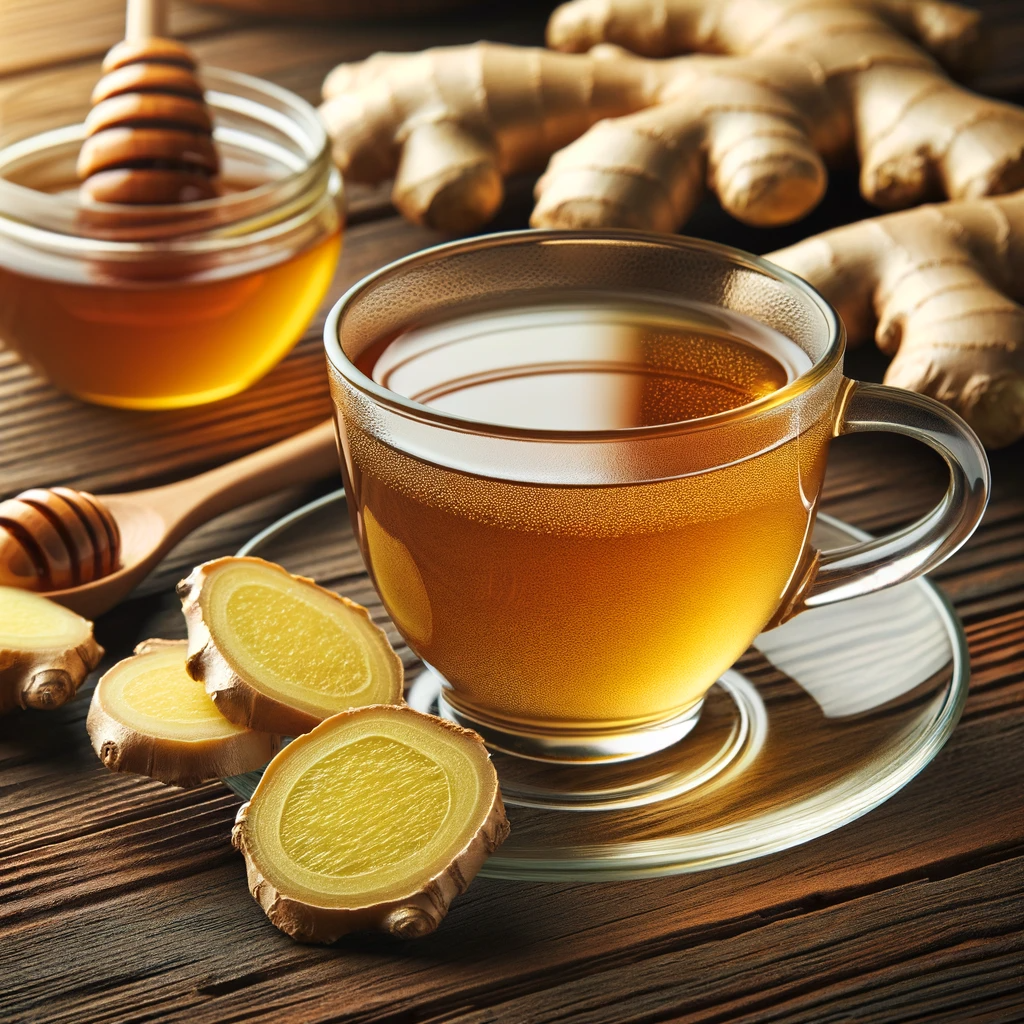
Growing Your Own Herbal Tea Garden
For those who wish to take their tea experience to the next level, growing your own herbs can be a rewarding endeavor. Herbs like mint, chamomile, and lemon balm are easy to grow and can be used fresh or dried for tea. A home garden allows you to enjoy the freshest, most potent herbal teas.
The Cultural and Historical Significance of Herbal Teas
Herbal teas have a rich history and cultural significance in many societies. From ancient Chinese medicinal teas to the soothing herbal infusions of European traditions, these beverages have been cherished for centuries. Understanding this history can deepen your appreciation for each cup you savor.
Pairing Herbal Teas with Holistic Nutrition
To maximize the benefits of herbal teas, consider pairing them with a holistic nutrition plan. Certain teas complement specific foods and can enhance nutrient absorption. For guidance on holistic nutrition, visit our section on holistic nutrition and health.
Sustainable and Ethical Sourcing of Herbs
In the spirit of holistic wellness, it’s crucial to consider the sustainability and ethics of where your herbal teas come from. Opt for organic, ethically sourced herbs to ensure the highest quality and to support sustainable farming practices.
Herbal Teas in Modern Health Practices
Modern health practices are increasingly recognizing the value of herbal teas. Many health practitioners now recommend herbal teas as part of a balanced wellness plan, acknowledging their role in preventive health and as complementary treatments.
For those exploring the intersections of different holistic health modalities, our comprehensive comparison of smudging kits offers insights into another traditional practice that aligns well with herbal tea consumption.
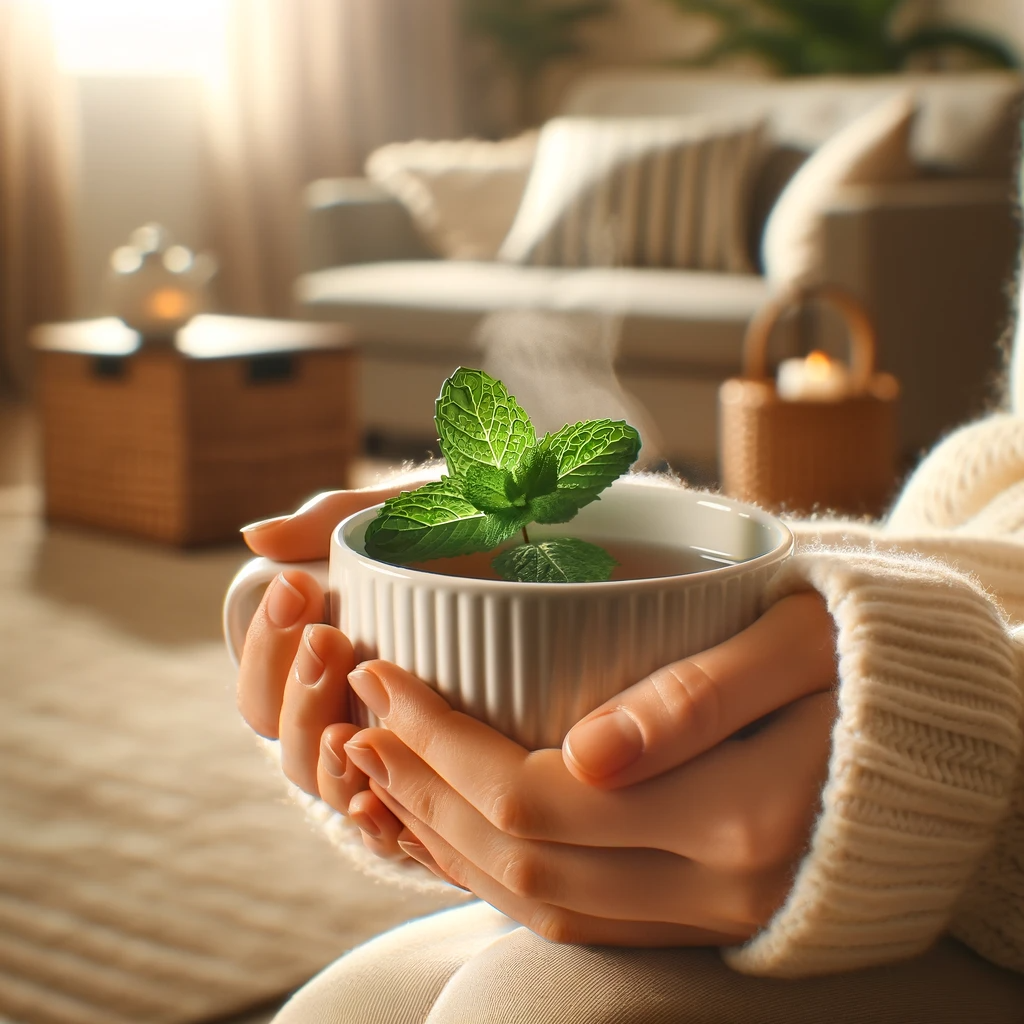
The Role of Herbal Teas in Stress Management and Mental Health
In the realm of mental wellness, herbal teas play a significant role. Ingredients like St. John’s Wort and Valerian root are renowned for their mood-stabilizing and anxiety-reducing properties. Incorporating these teas into a daily routine can be a gentle, natural approach to managing stress and enhancing mental well-being.
Customizing Herbal Teas for Personal Health Goals
Each individual’s health needs are unique, and herbal teas can be customized to meet these specific goals. For example, if you’re focusing on improving sleep, a blend of valerian and chamomile might be ideal. For enhancing cognitive function, teas with ginkgo biloba or gotu kola can be beneficial. This personalization makes herbal teas a versatile tool in any health toolkit.
Exploring the Antioxidant Properties of Herbal Teas
Antioxidants play a critical role in preventing cell damage and reducing the risk of chronic diseases. Herbal teas are a natural source of antioxidants, with teas like green tea, rooibos, and hibiscus offering particularly high levels. Regular consumption of these antioxidant-rich teas can contribute to long-term health and vitality.
Herbal Teas and Weight Management
Herbal teas can also be a valuable ally in weight management. Certain teas, such as green tea and oolong, have been shown to boost metabolism and aid in fat burning. Integrating these teas into a weight loss plan, along with a balanced diet and regular exercise, can enhance results.
The Connection Between Herbal Teas and Holistic Therapy
Herbal teas complement various forms of holistic therapy, such as Reiki, acupuncture, and yoga. They can enhance the therapeutic effects of these practices, creating a more integrated approach to health and healing. For more information on holistic therapies, visit our holistic therapy and wellness section.
Herbal Teas and Women’s Health
Certain herbal teas have specific benefits for women’s health. For instance, raspberry leaf tea is often recommended for menstrual discomfort and reproductive health, while teas like red clover and sage can be beneficial during menopause.
Engaging Community and Sharing Tea Rituals
Herbal tea drinking can be more than just a personal health practice; it can be a communal activity that fosters connection and sharing. Hosting tea gatherings or joining tea clubs can be a wonderful way to explore new teas, learn from others, and build a community around health and wellness.
Herbal Teas and Environmental Health: A Sustainable Choice
Beyond personal health, choosing herbal teas can also be a positive step towards environmental health. Many herbal teas are grown using sustainable farming practices, which have a lower environmental impact compared to conventional agriculture. By selecting teas from responsible sources, consumers can contribute to a healthier planet.
The Future of Herbal Teas: Trends and Innovations
The herbal tea industry is constantly evolving, with new trends and innovations emerging. From exotic blends to functional teas addressing specific health concerns, the future of herbal teas is bright and full of potential. Staying informed about these trends can help you make the most of what herbal teas have to offer.
Integrating Herbal Teas with Other Natural Remedies
Herbal teas can be part of a broader natural remedy toolkit. They can be combined with practices like aromatherapy, herbal supplements, and natural skincare for a comprehensive approach to health and wellness. This integration can lead to more holistic and effective health outcomes.
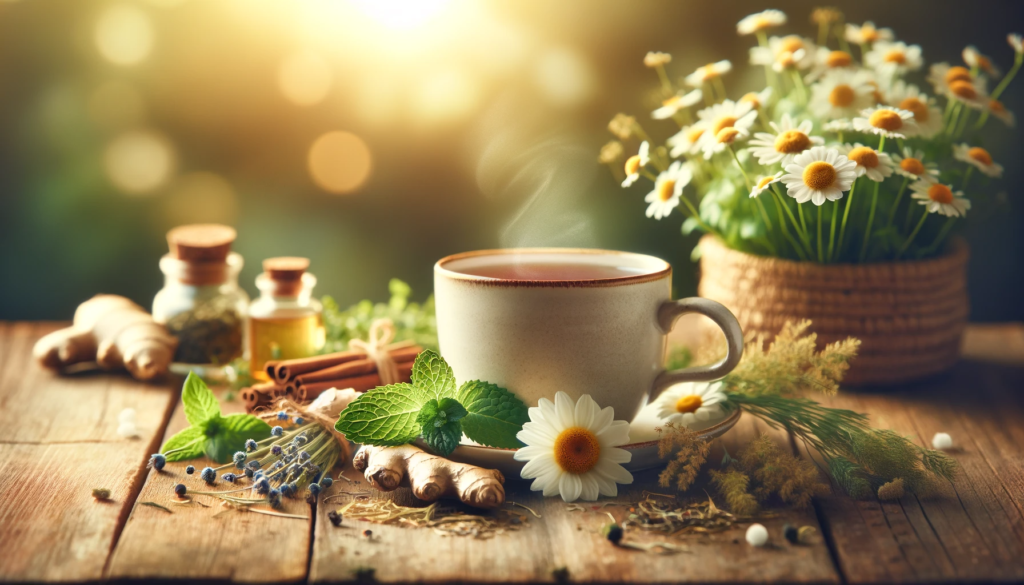
Teaching Children About Herbal Teas: Building Healthy Habits
Introducing children to herbal teas can be a great way to instill healthy habits early on. Herbal teas like chamomile and lemon balm are safe for children and can be a healthy alternative to sugary drinks. Educating children about the benefits of herbal teas can set the foundation for a lifetime of health-conscious choices.
Navigating the World of Herbal Tea Brands
With so many herbal tea brands on the market, choosing the right one can be overwhelming. Look for brands that prioritize quality, purity, and ethical sourcing. Reading reviews and doing research can help you find brands that align with your health goals and values.
Conclusion: Embracing the Herbal Tea Lifestyle for Holistic Health
Herbal teas offer a simple, natural way to support your health and wellness journey. By understanding their benefits, learning how to integrate them into your daily life, and choosing teas that align with your values, you can embrace a holistic approach to health that nurtures body, mind, and spirit.
For those just starting their journey with herbal teas, our best herbs for beginners guide is an excellent resource. To delve deeper into holistic health, explore our comprehensive sections on holistic health, holistic nutrition and health, and holistic therapy and wellness. Also, don’t miss out on our intriguing insights in the smudging kits comparison for an additional perspective on holistic practices.
Herbal teas are more than just beverages; they are a testament to the healing power of nature and a key component of a balanced, healthful lifestyle. Embrace the diversity and richness of herbal teas, and embark on a journey of discovery, wellness, and enjoyment.